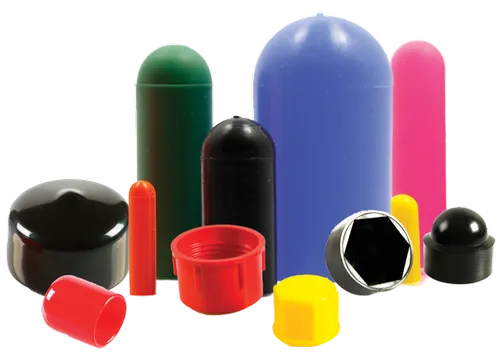The versatility and functionality of plastic plugs make them indispensable components in numerous industries. These seemingly simple devices play a crucial role in sealing, protecting, and maintaining the integrity of machinery and products. Keep reading to explore the wide range of plastic plugs and their applications in various industry sectors.
Understanding the Basics of Plastic Plugs and Their Functions
At their core, plastic plugs are designed to close off openings in materials or components. They act as protective barriers against contaminants, moisture, and dust, thus prolonging the durability of the enclosed item.
The design of a plastic plug is often as important as the material. For instance, some are engineered to snap in place effortlessly, while others may screw in for added security. Additionally, the choice of color can serve a practical purpose beyond aesthetics; specific colors may indicate particular qualities of the plugs, such as temperature resistance or suitability for food-grade applications.
One prevalent type of plastic plug is the one used for hole protection. These are commonly found in items shipped or stored for extended periods, where they prevent the ingress of debris that could otherwise cause damage or blockage.
Another common type is the port protection plug, which guards against contamination in fluid systems. The reliability of these plugs is paramount, as failure can result in costly leaks or system malfunctions.
The Role of Threaded Plastic Plugs in Machinery Protection

Threaded plastic plugs come into play when equipment requires secure protection that can withstand vibration and pressure changes. They are often used in machinery where components need to be regularly accessed for maintenance or inspection. The threads allow these plugs to be screwed tightly into place, creating a secure fit that can prevent leaks and the entry of foreign objects.
The design of threaded plugs can vary widely to match the intricacies of different machines. Some plugs feature a hexagonal head or a knurled surface, which provides a better grip for installation and removal. Others may have a flange or shoulder that seals against the surface, enhancing their leak-proof abilities.
Threaded plugs are also a favorite in the oil and gas industry, where equipment frequently encounters high pressures and corrosive substances. The strength and chemical resistance of the plastic material used for these plugs mean they can withstand harsh conditions without degrading.
Non-Threaded Plastic Plugs and Their Applications in Consumer Goods
Non-threaded plastic plugs are a mainstay in consumer goods, providing a simpler and often more economical option for single-use or temporary applications. These plugs are pushed or snapped into place and typically do not require tools for installation.
One advantage of non-threaded plugs is their quick installation, which enhances manufacturing efficiency and reduces assembly costs. Their ease of use makes them ideal for protecting ports and openings during shipping or before the final assembly.
Additionally, the aesthetic appeal of non-threaded plugs is crucial in consumer goods; they can be flush to the surface and designed to match the appearance of the product they are a part of. It’s not unusual to find them blending seamlessly with the overall design, or colored to categorize or differentiate components within a product line.
Plastic Tapered Plugs for Sealing and Insulation in Construction
In the construction industry, plastic tapered plugs are essential for their versatility and snug fit. These plugs provide not only a physical barrier but also contribute to the thermal insulation and soundproofing of structures.
Tapered plugs excel in scenarios where variable hole sizes occur, such as those made by drilling or those in prefabricated components. They can expand to fill irregular gaps, making them a handy option for on-site adjustments.
Moreover, the use of plastic tapered plugs in construction extends to safety and protection. They serve as temporary coverings for pipes and rods, shielding them from damage during transport and installation. Their ease of removal also makes them an ideal choice for temporary seals that need to be removed once construction is finalized.
Overall, the versatility and adaptability of plastic plugs to numerous industrial environments underscore their essential role in protecting and sealing critical components.
